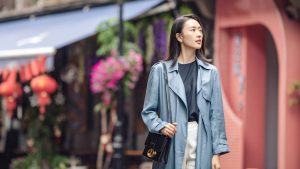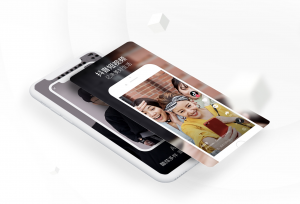This past week, the hot topic on China’s Weibo- and WeChat-sphere was the wedding of actors Huang Xiaoming and Angela Yeung (better known as Angelababy), a stereotypically fairytale event held at the very romantic Shanghai Exhibition Center.
Attended by nearly 600 guests, among them celebrities like Li Bingbing, Shu Qi, Chiling Lin, and Hong Kong filmmaker John Woo, on the surface the event was just another entertainment-industry spectacle. But looking at it on a deeper level, Huang and Yeung’s wedding is an interesting reflection of the current state of luxury branding and marketing in China in 2015.
For starters, the event was heavy on product placement to the point of saturation—not terribly unexpected, considering the bride and groom endorse everything from Tissot watches and Samsonite Red luggage to Coach accessories and Meitu phones.
Product placement ran the gamut from Yeung’s 10 million yuan ($1.6 million), six-carat diamond Chaumet Josephine wedding ring—currently with over 95,000 likes on Instagram—as well as every other bit of (similarly Chaumet) jewelry worn by the bride and groom (which was promoted on the brand’s Weibo page). Yeung’s wedding dress came from Dior, while other dresses, like the one that appears in her Paris-shot wedding photos, came from the likes of Elie Saab. Gift boxes supplied to guests included chocolate supplied by Dove as well as the aforementioned Meitu phones.
So far, nothing terribly surprising—these brands most likely paid out the nose to make a cameo.
What is arguably more interesting about brand placements at Huang and Yeung’s wedding is the number of Chinese companies—many of which are invested in by the actors—that made an appearance. Tens of thousands of flowers were supplied by Shanghai high-end florist and boutique The Beast (which is now selling replicas of the hand bouquets and brooches worn by VIP guests at the wedding). Netizens in China were quick to point out that the luxury sedans that transported VIPs at the event were sponsored by the online lending platform Aicai (爱财有道), in which Huang Xiaoming is an investor.
Both the bride and groom are among the numerous high-profile celebrities in the Greater China region that have recently set up their own venture capital firms—Star VC in Huang’s case, and AB Capital in Yeung’s.
Star VC—which also counts wedding guest Li Bingbing as a partner—has invested in the Vine-like short video app Miaopai, K-Pop inspired fast fashion e-commerce site Handu, and the home theatre hardware company JmGO.
Yeung’s firm, AB Capital, leans more on the lifestyle side, investing in e-commerce startup Ymatou, juice e-commerce site HeyJuice, beauty app Meila, and Airbnb-knockoff Zhubaijia.
The other interesting trend reflected in Huang and Yeung’s wedding was the charity angle. At the event, the SCMP noted this week, Huang surprised his wife “by announcing that he had established a charity fund in her name,” playing a video “showing [Huang] visiting hearing-impaired children, before revealing that he had provided financial aid to 527 of these children, one for every guest at the wedding.”
Although Chinese celebrities have forayed into the charity world with increasing frequency in recent years—with singer Faye Wong’s Smile Angel Foundation one of the more well-known examples—Huang’s very public gesture could be an indication that charity could be the next game of one-upmanship among celebs in China in 2016.
From imported O’Hara roses and six-carat rocks to big charity donations, Huang and Yeung’s wedding is an indicator that product placement isn’t dead in China. However, it is becoming a much muddier arena, particularly for foreign brands aching to make noise in the market and encourage shoppers to return to Beijing or Shanghai boutiques.
What this wedding-slash-commercial extravaganza indicates to major brands is that the era of a dedicated celebrity brand ambassador is long gone. Celebrities like Huang and Yeung arguably have greater urgency to promote the brands and companies that they invest in than foreign luxury brands.
This is a major shift from just a few years ago, and indicates that brands may be better off looking beyond big-name celebrities, towards more specific influencers in the market—not just fashion bloggers or Weibo stars, but actual influential consumers whose friends and family look to them as tastemakers.
—This story was first published by Jing Daily. Avery Booker is a partner at China Luxury Advisors.






